
Jobs in life science can vary greatly depending on how you choose to specialize within the field.
An average day at work might include anything from working in a laboratory analyzing specimens, to being outdoors collecting the samples needed for analysis, or even helping improve the quality of life of people or animals.
In addition to being interesting and challenging, most jobs in life science offer an opportunity to work on making people’s lives better, which can be extremely rewarding.
Here are some of the top life science jobs.
1. Laboratory Assistant
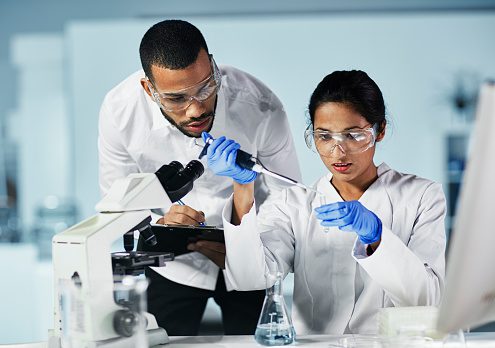
Why Become a Laboratory Assistant?
Laboratory assistants help get samples of skin tissue, blood, and urine ready for testing and analysis.
Assistants might also perform these tests with the help or supervision of the lab technician.
Once these tests are complete, the laboratory assistant records the results and transfers them to the patient’s official record.
| Laboratory Assistant Key Stats | |
|---|---|
| Education | 1-2 Years |
| Outlook | 11% |
Read the full career guide: How to Become a Laboratory Assistant
2. Microbiologist

Why Become a Microbiologist?
The typical work of a microbiologist includes analyzing the nature of the smallest organisms to better understand them.
This might include analyzing diseased cells to develop medical cures.
Working with pharmaceutical companies or medical research labs, microbiologists can make an impact in the lives of sick people everywhere.
| Microbiologist Key Stats | |
|---|---|
| Education | 4+ Years |
| Outlook | 8.2% |
Read the full career guide: How to Become a Microbiologist
3. Occupational Therapist

Why Become an Occupational Therapist?
Working as an occupational therapist, you’ll help people who are recovering from medical or mental health issues to care for themselves.
These people may need help learning the skills necessary for adult life, like cooking, cleaning, and getting themselves places.
As an occupational therapist, you’ll use patience and empathy to teach them these skills and any others you can see they need.
| Occupational Therapist Key Stats | |
|---|---|
| Education | 3-4 Years |
| Outlook | 18% |
Read the full career guide: How to Become an Occupational Therapist
4. Medical Lab Technician

Why Become a Medical Lab Technician?
Medical lab technicians assist in the diagnosis of medical issues in patients by testing samples to confirm the validity of a doctor’s diagnosis.
For example, a doctor might suspect a patient has anemia because they report having low energy levels, feeling cold, and needing to take constant naps.
These are common symptoms of anemia, but the only way to confirm this is the issue is to have a blood sample analyzed.
The medical lab technician performs tests on blood, stool, and other tissue samples.
| Medical Lab Technician Key Stats | |
|---|---|
| Education | 1-2 Years |
| Outlook | 11% |
Read the full career guide: How to Become a Medical Lab Technician
5. Environmental Scientist
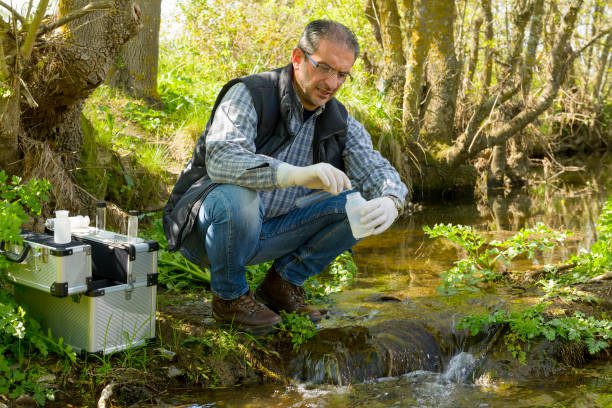
Why Become an Environmental Scientist?
An environmental scientist typically specializes in one area of the field, such as oceanography, weather, geography, or wildlife habitats.
Using their specialized knowledge, they search for the cause of issues that impact the environment or a specific kind of animal.
| Environmental Scientist Key Stats | |
|---|---|
| Education | 4+ Years |
| Outlook | 15% |
Read the full career guide: How to Become an Environmental Scientist
6. Pharmaceutical Engineer
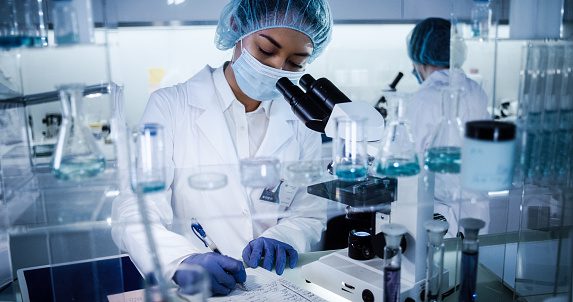
Why Become a Pharmaceutical Engineer?
Pharmaceutical engineers have a strong background in chemistry, biology, and engineering that they apply to the drug development process.
These engineers typically work for a large pharmaceutical company, helping with the process of bringing new drugs to market.
Before a drug can be made available to the general public, testing must be conducted and the results compiled to prove the treatment is safe and effective.
| Pharmaceutical Engineer Key Stats | |
|---|---|
| Education | 4+ Years |
| Outlook | 6% |
Read the full career guide: How to Become a Pharmaceutical Engineer
7. Forensic Scientist
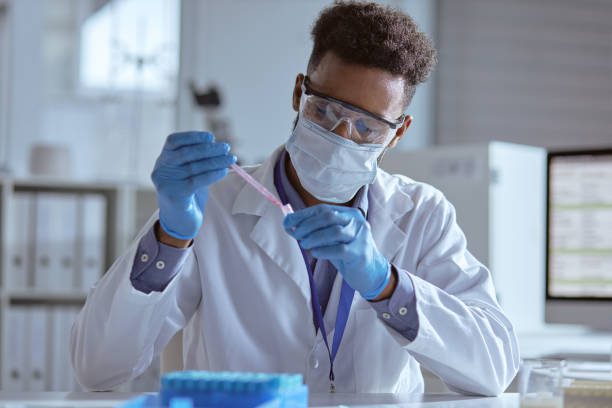
Why Become a Forensic Scientist?
Forensic scientists work closely with law enforcement to try and investigate the clues left behind at a crime scene.
In addition to testing hair, fibers, and blood that is found at the scene, forensic scientists analyze blood spatter and gunshot residue.
They may also have to testify in court to explain the findings.
| Forensic Scientist Key Stats | |
|---|---|
| Education | 4+ Years |
| Outlook | 14% |
Read the full career guide: How to Become a Forensic Scientist
8. Zoologist
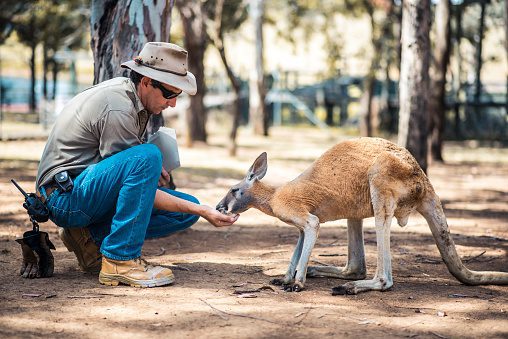
Why Become a Zoologist?
Zoologists can specialize in one type of animal, an entire species, or the environment that animals live in.
A large part of a zoologist’s work is observing animals recording their behaviors, and then publishing the findings in scholarly journals or research papers.
| Zoologist Key Stats | |
|---|---|
| Education | 3-4 Years |
| Outlook | 5% |
Read the full career guide: How to Become a Zoologist
9. Wildlife Biologist
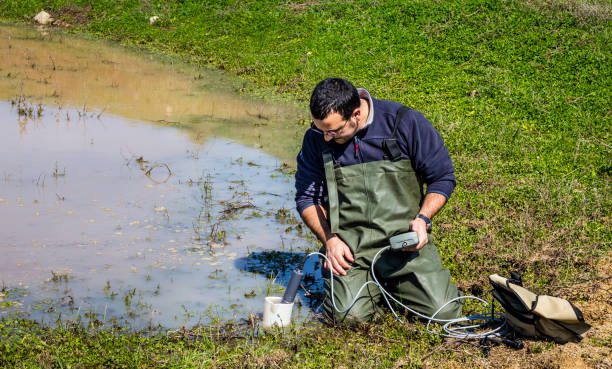
Why Become a Wildlife Biologist?
Wildlife biologists work with animals in their natural habitat or in a research setting, studying the way changes in the environment impact the animals and vice versa.
This can be a great way for animal lovers to help improve the health and well-being of animals without having to be as hands-on with treating illnesses as a veterinarian.
| Wildlife Biologist Key Stats | |
|---|---|
| Education | 4+ Years |
| Outlook | 8% |
Read the full career guide: How to Become a Wildlife Biologist
10. Clinical Researcher

Why Become Clinical Researcher?
Clinical researchers are in high demand in the current job market and are poised to stay that way in the near future, as they can work for a variety of employers, including pharmaceutical companies, academic institutions, and research organizations.
They perform trials and tests that are a necessary part of the process to get medical devices and drugs on the market.
| Clinical Researcher Key Stats | |
|---|---|
| Education | 4+ Years |
| Outlook | 8% |
Read the full career guide: How to Become Clinical Researcher
11. Immunologist
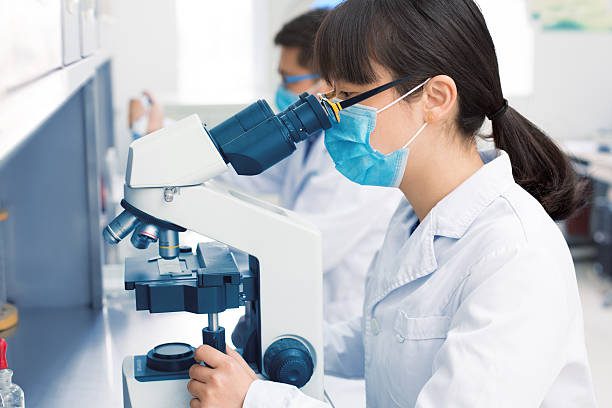
Why Become an Immunologist?
An immunologist is a specialized type of doctor that studies multiple aspects of diseases, including how they spread and what treatments can be used to contain them.
While immunologists must study for years and pass the MCAT certification exam to begin working in the field, their work can be quite significant, as it can help prevent the spread of contagious diseases and even save lives.
These life sciences careers offer multiple ways you can make a difference while helping people and animals have a better quality of life.
| Immunologist Key Stats | |
|---|---|
| Education | 4+ Years |
| Outlook | 7% |
Read the full career guide: How to Become an Immunologist









